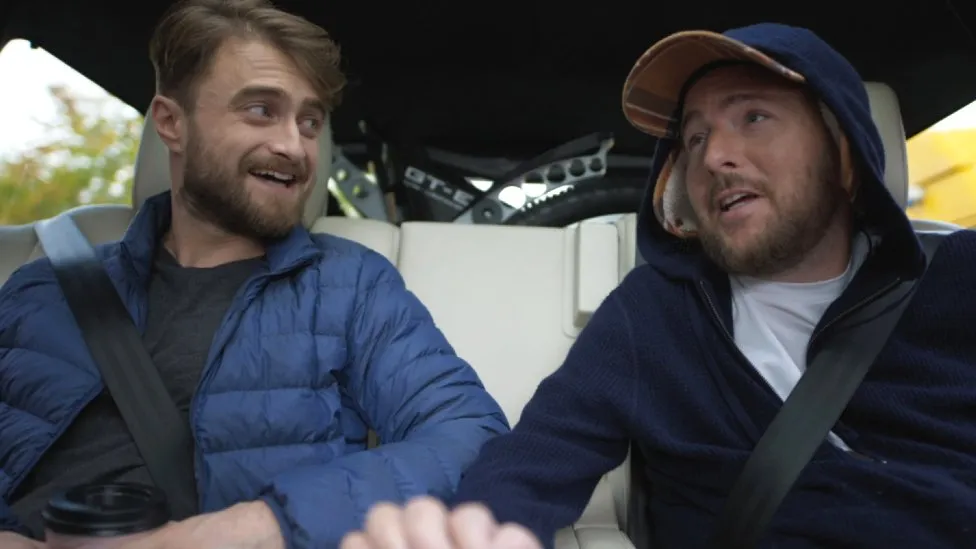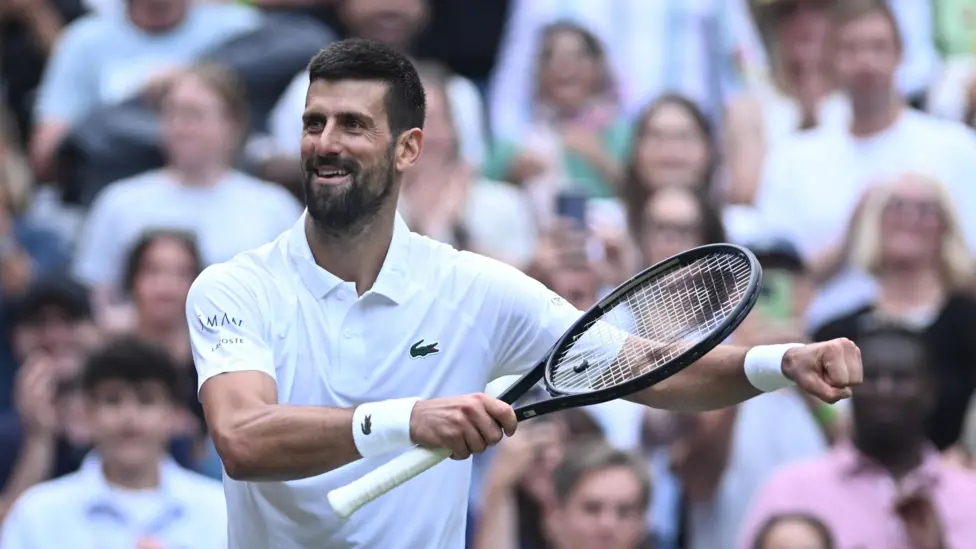Harry Potter stuntman: Breaking my neck made a man of me
David Holmes vividly remembers the day he joined the Harry Potter stunt crew.

It was August 2000. The first film was in pre-production at a former Rolls-Royce engine factory converted into movie studios. And the filmmakers were still trying to decide how to convincingly bring some of the magic of JK Rowling's best sellers to the cinema screen.
"My first day's work was being the world's first Quidditch player," he recalls with a proud smile.
"We put a broomstick on the back of a truck and drove it down the runway at Leavesden Studios, with [director] Chris Columbus looking down a camera lens whooping and hollering, and saying 'Yes, I think this is how we're gonna do Quidditch.'"
Holmes, a talented young gymnast from Essex still in his late teens, was asked to become the main double for Daniel Radcliffe's Harry, performing stunts that were deemed too risky for the film's 11-year-old star. The pair quickly forged a friendship that endures until today.
"Dave, still, is one of the most important people in my life. As he has been for the last 20 years," says Radcliffe.
"He was somebody that was so incredibly fun to hang out with when I was young.
"But then as I grew up he became a real guide to me, and kind of a mentor and someone who really looked out for me, and that really has just continued as we've grown."
Listen: Access All interviews David Holmes
"He was like my little brother on the films, and then grew to be one of my best friends," agrees Holmes. "He's always been there for me."
It's a powerful statement that's backed up by devastating experience.
During the run-up to filming of the seventh story, The Deathly Hallows Part 1, in January 2009, Holmes was badly injured. Rehearsing a stunt where he was rapidly jerked back on a harness, he broke his neck.
The resulting spinal injury meant he was in hospital for several months. He's permanently paralysed from the chest downwards and now uses a wheelchair.
Nearly 15 years later, he's the subject of a documentary. David Holmes: The Boy Who Lived details his experiences and the way his close friendships with people including Radcliffe have been an important part of his life following the accident.
Holmes says that reflecting on his experiences for the documentary has been cathartic.
"Some of it is not the easiest of things to digest," he says. "I just want to be honest. And honestly living with a broken neck is hard.
"I've said before, breaking my neck made a man of me.
"And looking back. I'm very grateful that I've managed to retain my sense of self, which is probably my biggest achievement."
Character and friendship
Holmes's sense of positivity is a constant theme throughout the 90-minute film. Something that's attributed to both his strong personality, and the close group of friends that surround him.
It feels more like a story of character and friendship than anything else.
"Yeah," he agrees. "I'm very fortunate to have a lot of love in my life. And you know that message 'it takes a village to raise a child'. Well, it takes a village to survive a spinal injury as well. And I have a large village of a lot of love so I'm very thankful for that."
It's a village that's made up of the people he's closest to, many of whom appear in the documentary. The group includes his friend and care assistant Tommy, fellow stunt performers Marc and Tolga, whom he worked with on the Potter series. As well as Radcliffe.
"Anyone that worked on that franchise for the whole lot is part of a giant family," Holmes explains. "Just the amount of time we spent together, and the life experiences we've shared together."
The production shows footage ranging from archive of them all joking around on the film set, to sitting by his bedside following the accident, to laughing with him in the present day as they all eat together at David's home.
It also demonstrates the way he constantly wants to be looking forward, rather than reflecting too much on what has happened to him.
"Dave is, and has always been, an extraordinary person, before and after the accident," says Daniel Radcliffe, who serves as an executive producer on the project.
"I want people to get to know my friend, because he's so much fun, he's so funny, he's so smart, he's so kind, and so generous.
"And just an amazing person to be around. That's why I have wanted to share Dave with the world for so long."
One example of David's attitude towards life is the way he's helped to raise tens of thousands of pounds for people in need of medical treatment.
"Wonderful thing, right," he says with justifiable pride. "Like a silver lining on a very dark cloud. And to give back has always been important to me.
"To highlight the heroes that work in the NHS is something that we have been able to do on this project and I'm really proud of that. And so not just giving back financially, but giving back in awareness is really important to me."
He's also hopeful that the documentary will help him with his hopes of passing his skills and experience on to younger generations. His dream is a stunt school for young performers.
"I think unless you're investing in youth, you're not really investing in the whole human experience. The only thing that has real value in this world is opening doors for other people.
"I was fortunate enough to have a lot of doors open for me. And if I can do the same for other people whether they're disabled or able bodied whether that's in the film industry or in other aspects in life. I think giving back is the best of what we are as human."
There's little evidence of self pity in the documentary. And he is insistent that he wants those watching to take a hopeful message from it.
"In life you're either a victim or a survivor, right. I choose to be a survivor, and if that has a knock-on effect for other people that are living with any hardships in life then that's got to be a positive thing.
"It's OK to be vulnerable. It's OK to show that life's not easy and ultimately not kind to you sometimes. But how you deal with it is a reflection on who you are. It's important to rise above all the challenges, and just to embrace all of what life throws at you. The good and the bad."
-bbc







